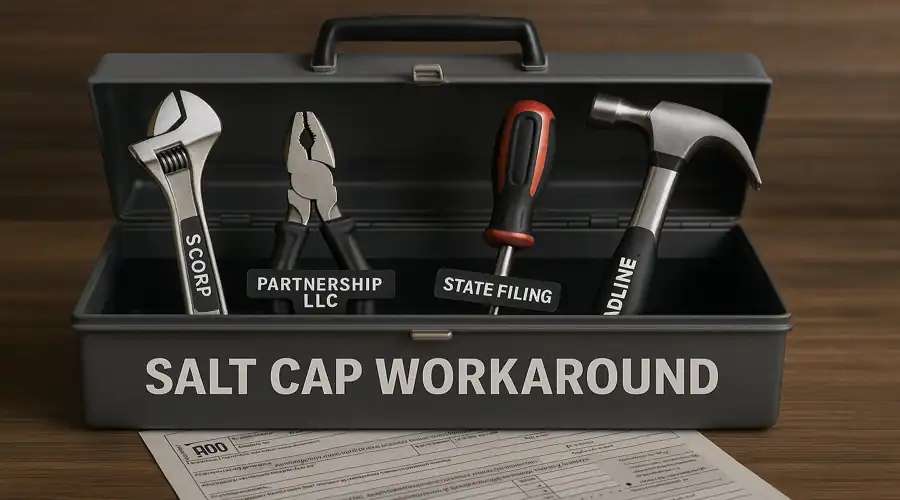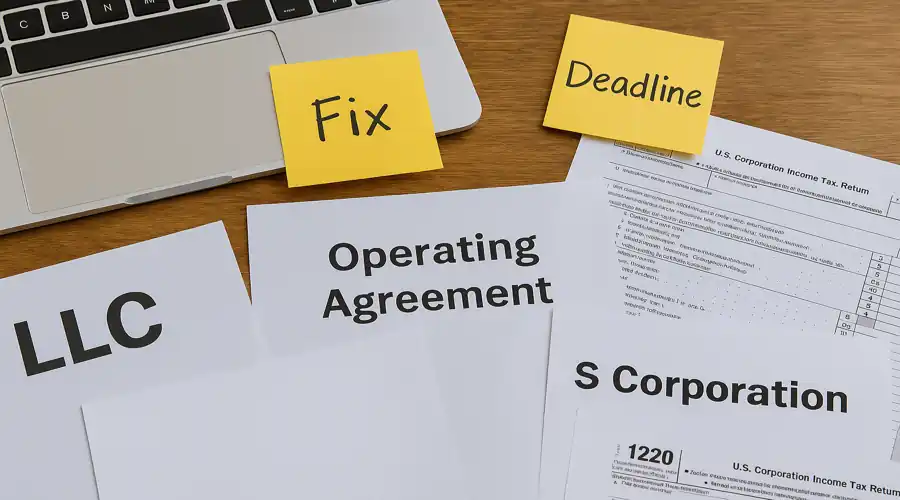A Charging Order Protection Entity (COPE) is a unique type of entity that can provide additional protection for the assets it holds from the owner’s personal liabilities. It is far more advanced and complex than the average LLC.
The COPE is generally structured as a Limited Liability Company (LLC), and state legislatures around the country have created these types of entities to help potential debtors and cause problems for creditors seizing and selling their assets.
This entity’s goal is to protect what’s inside the COPE LLC, not just provide the typical LLC benefit of protecting the outside owners and managers from the operations of the LLC.
Example: How a COPE Works in Real Life
For example, let’s assume you are in a car accident caused by your texting and driving. As such, you might be facing a major liability, but with a COPE LLC holding your assets, it would generally be difficult for the creditor to get ‘into’ the LLC and force the liquidation of the assets and/or LLC.
You might be thinking,
“That’s what I thought was already doing with my LLC! I was protecting my rental property by putting it in the LLC.”
However, that is not the case in most states. The truth is, what you were doing was protecting yourself and your personal assets from the liabilities that could arise from the operations inside your LLC, not the other way around. LLCs were developed with the primary purpose of protecting you from the rental, not protecting the rental from yourself.
Can a COPE Entity Protect My Assets in Every Instance?
First, to say a COPE provides absolute protection for its assets, is far too bold and presumptuous. Nonetheless, the COPE is generally recognized as one of the best types of entities, and the most affordable, for asset protection without using an irrevocable trust or something much more elaborate.
Now there are a few limitations you should be aware of and when a COPE LLC probably won’t even matter or protect the assets it holds:
- The IRS can pierce your LLC from the outside to satisfy personal tax liabilities.
- In a divorce, the assets of the LLC will be valued and divided as the Court may see fit in order to provide an equitable division of the marital assets.
- And finally, if you act grossly negligent, fraudulently or criminally in the operations of the LLC or in your personal life, there’s a good chance the creditor or government will be able to force the dissolution of the LLC or sale of its assets.
So what’s the main goal of a COPE LLC? Obviously, it wouldn’t give Walter White carte blanche to hide his cash or real estate in a COPE LLC and not expect the government to get at it.
The main goal of the COPE LLC is to force an early settlement in a lawsuit. A creditor will certainly have an uphill battle trying to pierce the COPE LLC from the outside, and the legal fees could be substantial.
Thus, if you want to protect your assets, try to hide them (honestly and with proper privacy techniques during the set-up), then if the creditor does find the entity, a COPE LLC will dissuade them from suing you because it will be too costly, and if that doesn’t work, they will probably want to give up or settle at some point rather than see it through a long and expensive drawn out court battle.
That’s the goal with a properly formed and maintained COPE LLC.
How Do I Maintain a COPE LLC?
You maintain a COPE LLC the same way you maintain a regular LLC… and that’s not with one piece of paper in the drawer after you filed it online 3 years ago and long forgot about the corporate maintenance since then.
You may not like to hear this, but you should maintain any LLC (and especially the COPE LLC), just like you would a typical corporation. You should be doing:
- Annual minutes
- Have a corporate book
- Membership certificates
- A quality operating agreement
- Use the company name on all important documents
- Have a separate EIN, bank account, and respect the corporate veil in all operations
…and that’s just the basics.
Don’t think you can cut corners and the COPE LLC will come to the rescue if you’re in court.
I sometimes get into debates with those advocates of the LLC because of their ‘simplicity’, and further regarding how to set-up the LLC and maintain it. They may say you don’t have to take these important steps in the operations of your standard or COPE LLC, but trust me… when these naysayers are preparing for Court, they will be up until 3am the night before backdating their LLC minutes to look ‘legit’ when they get to court.
This is akin to the old adage:
“There are no atheists in fox holes during battle.”
You can always consider our more than affordable CMP services at our law firm.
Can a COPE LLC ‘Hide’ My Assets?
In and of itself a COPE LLC cannot provide anonymity, but you can couple some privacy strategies with the set-up of the COPE if you do it properly.
I’ve often said that ‘camouflage’ and a ‘bullet proof vest’ provide the best combined protection even in the realm of asset protection. Isn’t that what you would want—both types of protection in a fire fight?
Therefore, during the set-up and structuring of your asset protection plan, make sure to discuss privacy as an important part of the strategy. Here are a few procedures and techniques to consider:
- Don’t list your personal or home address on any of the LLC formation documents. Typically, you will want to use a mail forwarding address or P.O. Box for the company. Here is a link to our virtual mailbox program at our law firm for use by our clients.
- Use a unique and stealthy name for the LLC. Never have your last name or another company name linked to you, for a COPE entity that is holding valuable assets.
- Most importantly and when possible, try not to have your name listed on any public documents filed for the COPE LLC. This would be the Manager position and certainly the Registered Agent. Of course, there will be a cost to use someone for these roles, but the price may be worth it to you.
How Does a COPE Work?
This is a legal principle developed in courts and then codified, or made into law, in approximately 22 states (more on this below).
But first, the concept is that the COPE LLC allows you, the owner of an asset, to protect its equity by transferring the asset into and having it owned by the COPE LLC. You are no longer the owner of the asset—the LLC is.
Now presuming you might get into a personal lawsuit, the courts and then legislatures have decided that it wouldn’t be fair for a creditor to get at the actual asset that isn’t owned by you, but only the income it produces.
The effect of this law is that a judge will give an order charging a debtor to pay creditors from the revenue of an entity, but not allow the creditor to foreclose on or dissolve the entity to get at the asset. Thus, by putting an asset like a real estate property or an investment account in the right type of COPE, you have protected the asset.
Does the COPE Entity Work in Every State?
Regrettably, the COPE LLC is not available in every state. However, it doesn’t mean it still can’t be used and helpful, there just has to be more thought and careful planning utilized when implementing the COPE LLC.
As of 2025, the 22 states with COPE laws currently on the books are:
- Alabama
- Arizona
- Delaware
- Indiana
- Maine
- Michigan
- Mississippi
- Nevada
- New Jersey
- North Carolina
- North Dakota
- Ohio
- Oklahoma
- Rhode Island
- South Dakota
- Tennessee
- Texas
- Virginia
- West Virginia
- Wyoming
- Montana
- Utah
In total:
- 22 states offer Charging Order Protection (COPE) for LLCs
- 29 states offer similar protection through Limited Partnerships (LPs)
- Many states offer both forms of protection
- Louisiana remains the only state that offers neither LLC nor LP charging order protection
Three Viable COPE Implementation Strategies
Option 1
The property or asset you are trying to protect is actually located in a state where the COPE law exists. Attorneys generally agree this structure will generally provide the best protection and outcome.
For example, let’s say you live in California, but have a rental property in Tennessee. Because Tennessee has a COPE law on the books, you will get ‘more’ protection for the asset than if you bought the same type of property in Oregon.
Option 2
The property or asset is in a state that does not have a COPE law on the books… say for example Florida. So the client, who lives in Massachusetts, takes the time and money to set up an entity in Wyoming (a COPE state), then ‘registers’ it as a foreign entity doing business in Florida.
Attorneys are split on the effectiveness of this strategy, but the majority agree that a creditor of the owner (living in MA) would have a harder time getting at the asset in Florida because they would have to go through Wyoming to get at it.
Option 3
The most common structure for clients with multiple assets in maybe multiple states, and valuable assets worth protecting, is to set up a ‘parent’ or ‘holding company’ in a COPE state, and then have that COPE entity own all of the other ‘baby’ or ‘subsidiary’ LLCs in the other states.
Again, most attorneys agree that this would be problematic at the least for a creditor and if properly maintained and enough layers involved, it would be a fantastic asset protection structure. It just comes down to the cost-benefit analysis at that point.
In Summary
Now, it’s understandable that any of the options above might appear sexy and exciting to implement. However, because of the cost and complexity, I don’t recommend this for the brand-new investor, but rather the investor with significant assets to protect.
Also, I often see non-lawyer, self-professed gurus selling structures such as these for thousands of dollars and making outrageous promises of protection and ease of maintenance. Be sure to get price quotes and opinions from various bona fide law firms before implementing a COPE.
In summary, the more assets one has, the more likely a COPE LLC structure would be beneficial in their overall plan and more affordable than they might realize.
Take the Next Step Toward Financial Freedom
Take the next step in owning your financial future. Start with the Trifecta Planner—your personalized system to track tax deadlines, plan business goals, and build real momentum.
Want to unlock more savings? Download our FREE Tax Guide, packed with 30+ actionable strategies and deductions to help you keep more of what you earn.
If you’re a CPA, EA, attorney, or advisor, it’s time to grow faster and serve smarter with the Main Street Certified Advisor program.
Let’s talk about where you’re headed—call 520-800-0986 or book your FREE Discovery Call today.









